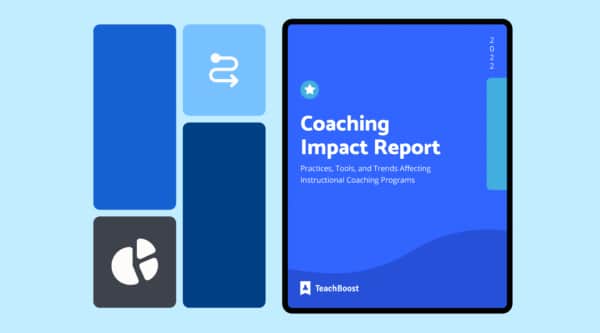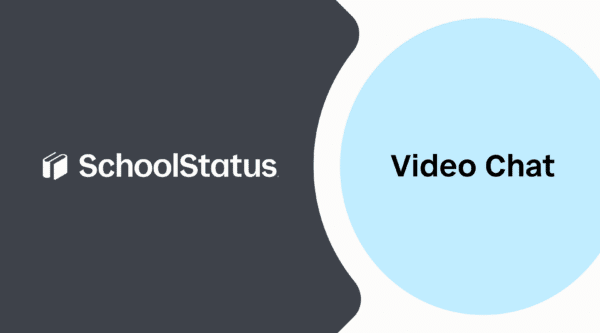


TeachBoost continues to learn—and share—experiences, skills, and tools from instructional coaches via our new chapter in the Your Coaching Toolbox series entitled, First Year as a Coach.
{{cta(’34b13594-505a-497a-8a75-16ae35acf14d’)}}
Kristy Louden, first year Instructional Coach from Hoover City School District in Alabama, reflects on her first year as a coach and what it’s like to build a coaching role from the ground up.
I
n the spring of my eleventh year of teaching high school English, I was getting antsy. Itchy. Restless. I needed a change, but I had no idea what I was looking for. It wasn’t that I didn’t love teaching, it was just that I wanted something more.
Thankfully, I went to speak with one of our APs, Jennifer Hogan, knowing she would understand my situation, and might be able to help—Boy was I right!
Jennifer, a master at helping people reflect, peppered me with questions: “where do you want to be?”, “what would you be doing on your perfect day?”. On and on it went. I squirmed, I hmm-ed and I umm-ed. Honestly, these weren’t questions I’d ever really asked myself, but she isn’t one to let you not answer, so answer I did.
And then she said, “why don’t you become an instructional coach?”. She listed skills and interests she knew I had that would make me a perfect candidate, including: writing, PD, sharing with others, trying new things, communicating and my approachability.
There was only one problem: Our high school of 3,000 kids and 250 faculty didn’t have an IC position and I would have to propose the position to the principal.
Long story short, I did and he loved the idea. He instructed the master-schedule making AP to try to make my schedule work as a part time IC to see how it would go the first year. In July I found out that she did make it work and so my new role as an IC began.
Kicking Off the Role
When the year began, I had no idea what I was doing. Part of it is that this role is completely foreign to our school, another part is that I have no formal training, no ground rules, or even expectations for my role. My principal told me to “write my own job description” in hopes that we can make it a full time position next year. As awesome as this is, it’s also incredibly overwhelming.
Unlike teaching, instructional coaching does not have a predictable routine, relatively measurable goals, or myriad guidelines and expectations.
The first step was introducing my new role to the staff and I did this in three ways:
- Introduction to the new teachers — I figured my biggest group of potential “clients” were in this cohort of 20 new hires (and I was right). Also, I wanted to establish my role as an IC with them, before they knew me as a teacher.
- Introduction to the entire staff — During our first staff meeting, my principal surprised me by asking me to introduce my new role to the staff. With a shaking voice I explained that I was there to help them find resources, try new ideas, collaborate, and reflect on what they’re doing. Even though it was terrifying, I’m glad he voluntold me to do this because it put a face with the role.
- Shared a video explanation of my role with the staff — During the first full week of school I sent an email to the faculty to reintroduce myself and explain more of my role.
And that’s it! Then the requests for coaching started rolling in—Just kidding, they didn’t. It took a lot more work than just introducing myself and sharing a form for coaching requests.
Ongoing Campaign
Right away I did have a few requests for coaching: one from a new teacher, one from a colleague who needed tech help, and another from the teacher of the year for our state.
I was so excited to get started with these folks, but I realized very quickly that I needed to get myself organized first. One of the biggest challenges for me was getting used to my schedule. We have a seven period day and I was teaching Public Speaking during 2nd period and English 11 during 6th and 7th. On top of that, I was not in my room during 1st, 3rd, 4th, and half of 5th. Needless to say, there were many adjustments to be made.
While I still haven’t got the organization aspect down, I’m just organized enough to not feel like I’m losing my mind (yay for small miracles!).
I found that in the first couple weeks of beginning-of-school-craziness, requests for help died down. In order to keep a steady flow of requests for coaching, I had to create a campaign.
Twice during 9-week campaigns I email the staff to remind them that I exist. Once I had helped a few people, it got easier to write the email because I had actual examples to share. For instance, at the beginning of the 2nd 9-week period, I sent an email reminding teachers of how I could help them and sharing some specific ways I’d helped others throughout the school year so far. This was the best thing I’ve done because replies and requests came rolling in and reignited my excitement for this position.
Another part of my campaign is getting into classrooms. This is my absolute top priority for second semester. I was able to visit a few during 1st semester, but as I struggled to manage my own classes and my new role (and building a new house, moving twice, and dealing with all the issues that accompany those two things), I didn’t get into nearly as many as I’d like. I hope to visit at least two classrooms per week. Many teachers in our school have embraced the #observeme movement this year, so I’m going to start by visiting those teachers who have already invited everyone into their rooms.
The Challenge: Balancing Coaching & Teaching
- Always being “the English teacher” — When it comes to the colleagues I’ve worked with for nine years, it’s hard for them to see me as anything other than an English teacher. This hasn’t been a completely bad thing because it’s opened doors for me to help a lot of teachers with literacy strategies related to writing, rubrics, vocabulary, reading, etc.
- Balance — During the day when I’m meant to be helping others, I can get sidetracked by the needs within my own classroom. I’ve noticed it can be helpful to still be in the classroom because other teachers view that as credibility, however, it can also be a distraction.
- Giving Advice and Lacking Confidence — Have you heard of Imposter Syndrome? It’s the feeling that you’re going to be exposed as a fraud, and I’m definitely suffering from it this year. However, I know I am capable of this job. Heck, I wrote a giant proposal listing my skills and the reasons I should be an instructional coach, yet as I consider giving advice to my colleagues, I struggle to trust my own ideas. I also struggle to give advice that doesn’t start with “in my class, I…” because how annoying is that? It’s hard to avoid though, when I’ve spent the last 12 years doing what I hope is best in my own classroom. My strategy for this is to try to internalize praise, acknowledge my strengths, and celebrate my accomplishments. If you’re like me, none of these things are easy as they all conflict with my Midwestern upbringing with an emphasis on humility!
- Establishing a routine — Yikes. When I figure this out, I’ll write a book!
Wrapping Up: My First Year Learnings
This year hasn’t always been easy in the process of learning how to be an instructional coach—I have so far to go and so very much to learn. I’m having to embrace my failures by admitting that I didn’t follow through, or I couldn’t help someone the way they hoped. Not only do I have to admit it to myself, but I have to share these losses with my administrators so we can plan and shape this position for next year.
From these failures, though, I have found my weaknesses. And I’ve learned to get excited about the small stuff. A tweet from a colleague that I’ve helped them love planning again, or a thank you note from a history teacher for helping her kids start the writing process. These are things I love to do already, and the fact that I get to share this passion with our faculty is exactly what I needed.
Establishing your role as an instructional coach is so important and it’s going to be a struggle. That first year is going to feel weird: sometimes you’ll feel like you have nothing to show for your day (it’s so strange!), but forge on! Don’t be shy! Send those emails, share those shout-outs, peek your head in classrooms! Let everyone know who you are, what you are there for, and—most importantly—how you can help them and their students do their absolute best work!
About our Guest Blogger
Kristy Louden has been in the classroom for twelve years, teaching high school English and Public Speaking in Alabama. The 2017-18 school year started her journey as an instructional coach. As a member of her school’s Literacy Team, Writing Team, and Engaged Learning Team, Kristy’s classroom is infused with her passion for all of these things, and her students know that her goal is to have them “real-life ready” for the challenges they will soon face. When she isn’t at school, she is probably at the barn riding her horse, or relaxing with her husband and their three dogs.
Follow Kristy on Twitter: @loudenclearblog
{{cta(‘352a410e-db79-4f33-a482-d301e8041965′,’justifycenter’)}}
Stay Connected
News, articles, and tips for meeting your district's goals - delivered to your inbox.








